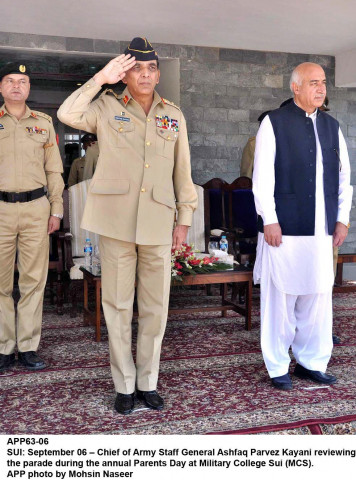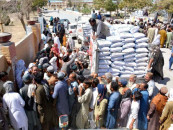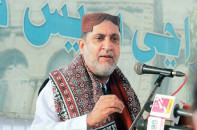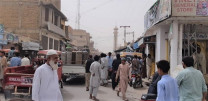An elusive peace
Balochistan has been used, abused by successive governments, but equally, it has been architect of its own misfortune.

Army chief General Ashfaq Pervez Kayani (L) and Balochistan Chief Minister Abdul Malik Baloch (R) at the Military College in Sui. PHOTO: APP
Against this background the chief of army staff paid a rare visit to the province, his first since 2007. He countered accusations that the army was ‘committing excesses’ and pointed to the fact that over 20,000 Baloch students were enrolled in institutions run by the army and the Frontier Corps; and that Baloch representation in the army now stood at 3.5 per cent — which is a considerable improvement over the 1.7 per cent of three years ago. This is unlikely to appease the nationalists, whose grievances go far wider and deeper than a desire to be integrated into the army.
Addressing one of the root causes of the issues of the province, General Ashfaq Parvez Kayani suggested that now was the time for the Baloch tribes to set aside their age-old internal conflicts and work together for the mutual benefit of the province. In doing so, he pinpointed a key issue — the extent to which Balochistan and its warring tribes have been their own worst enemy and done much to undermine the credibility of the Baloch cause. There is not a shred of doubt that Balochistan has been used and abused by successive governments, but equally, it has to a degree been the architect of its own misfortune. Unity is a difficult goal to achieve, but ultimately, the best path to peace and prosperity.
Published in The Express Tribune, September 8th, 2013.
Like Opinion & Editorial on Facebook, follow @ETOpEd on Twitter to receive all updates on all our daily pieces.



















COMMENTS
Comments are moderated and generally will be posted if they are on-topic and not abusive.
For more information, please see our Comments FAQ